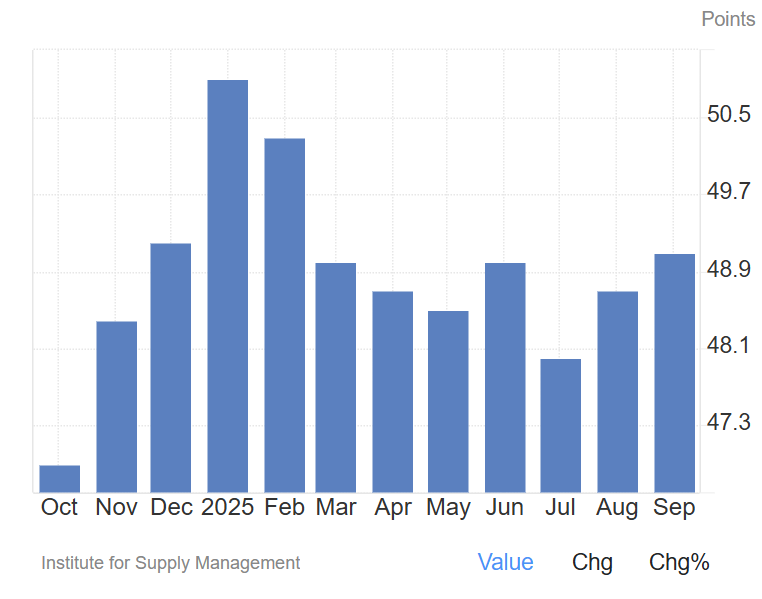
Overview
Bitcoin’s market cycles appear set to last longer than normal as weak ISM manufacturing figures signal continued economic headwinds and a sluggish recovery in business activities.
Connection Between ISM PMI and Bitcoin Price
The Institute for Supply Management’s (ISM) Manufacturing Purchasing Managers’ Index (PMI) has historically coincided with Bitcoin’s market cycle peaks. This pattern suggests a possible extension of the current cycle.
This correlation, which was notably emphasized by Raoul Pal from Real Vision, has collected attention from analysts with a macroeconomic focus on cryptocurrencies.
Colin, a qualitative analyst from Talks Crypto, highlighted that “All 3 past Bitcoin cycle tops have broadly aligned with this monthly, oscillating index,” suggesting a significant relationship between Bitcoin’s market shifts and the PMI’s fluctuations.
“If that relationship holds, it would suggest a considerably longer cycle than Bitcoin’s typically observed durations,” he said.
Current Manufacturing Conditions
The ISM Manufacturing PMI has remained below the neutral threshold of 50 for seven straight months, indicating a pattern of contraction. A movement past the 50 mark could suggest renewed economic growth, which historically coincides with enhanced Bitcoin valuations.
Earlier this year, the PMI did rise above 50, but has since reverted to a contraction phase, reinforcing the prevailing weakness in the manufacturing sector.
 ISM Data
ISM Data
Source: TradingEconomics
Challenges Facing Manufacturers
The initial optimism at the year’s onset, linked to anticipated business-friendly policies under the new Trump administration, was sharply contrasted by ongoing issues such as high tariffs and dwindling global demand.
The latest ISM report indicated slight progress, with increased prices juxtaposed against shrinking imports and exports—an indication of uneven conditions across various manufacturing sectors.
One manager noted, “business continues to be severely depressed, with extreme cost pressures from tariffs, significantly affecting profitability.”
“We face increasing pricing pressure as companies pass on the tariffs to customers through surcharges, often raising prices by up to 20%.”


